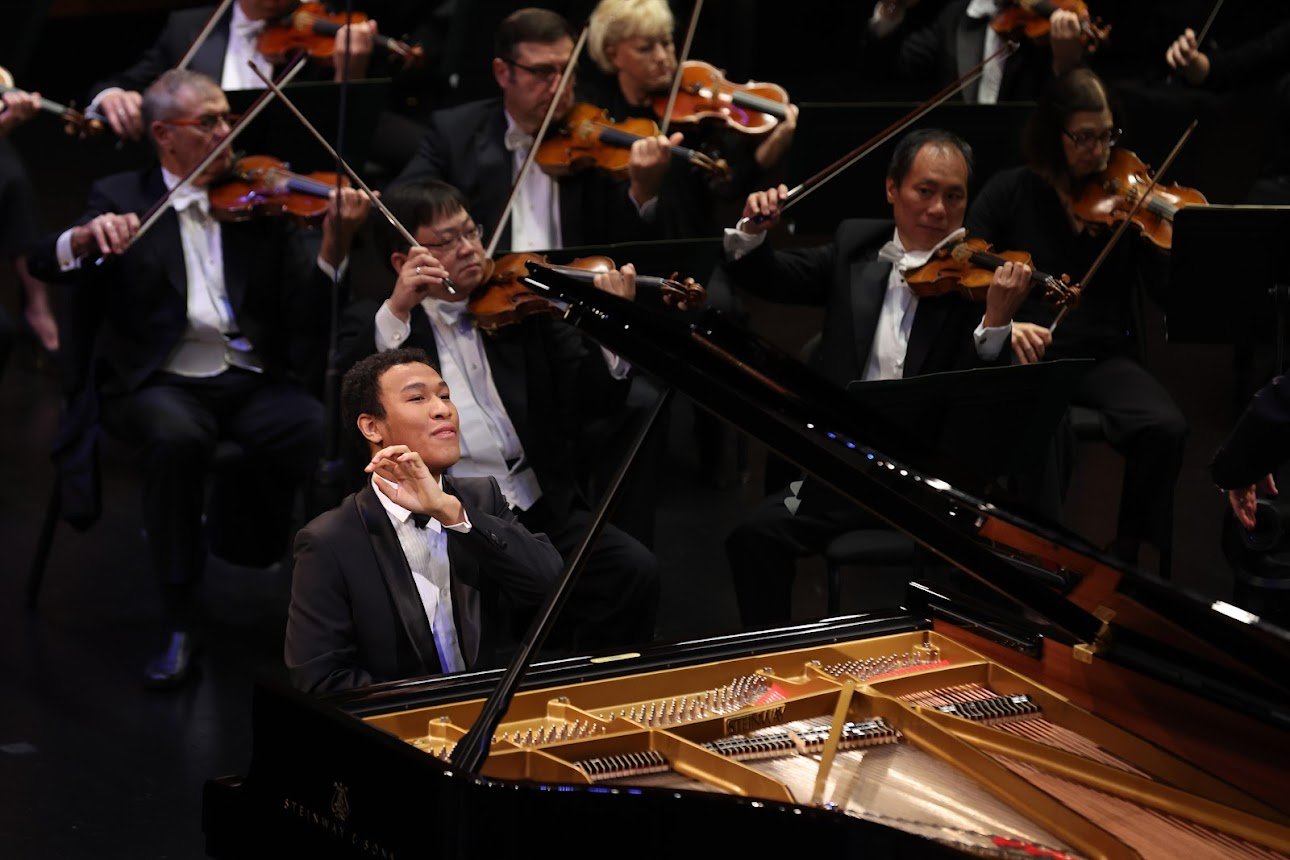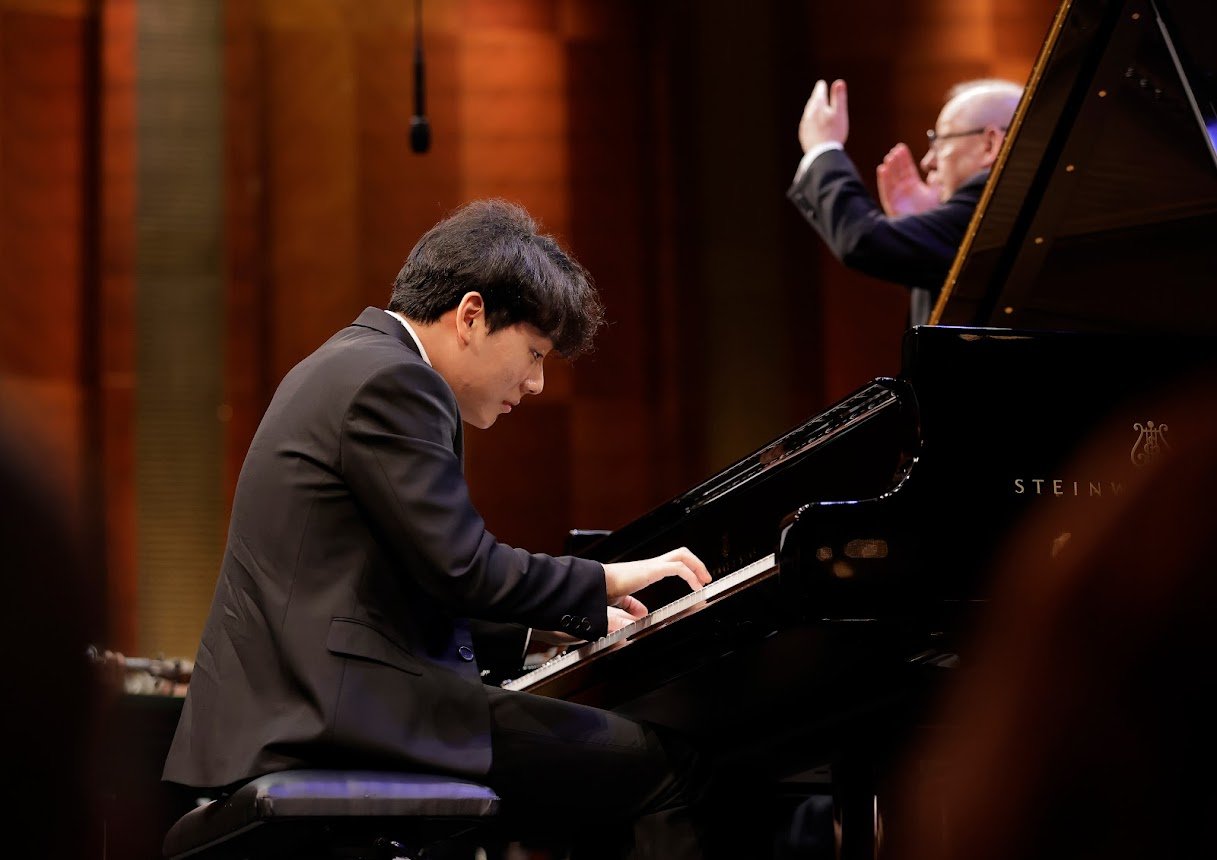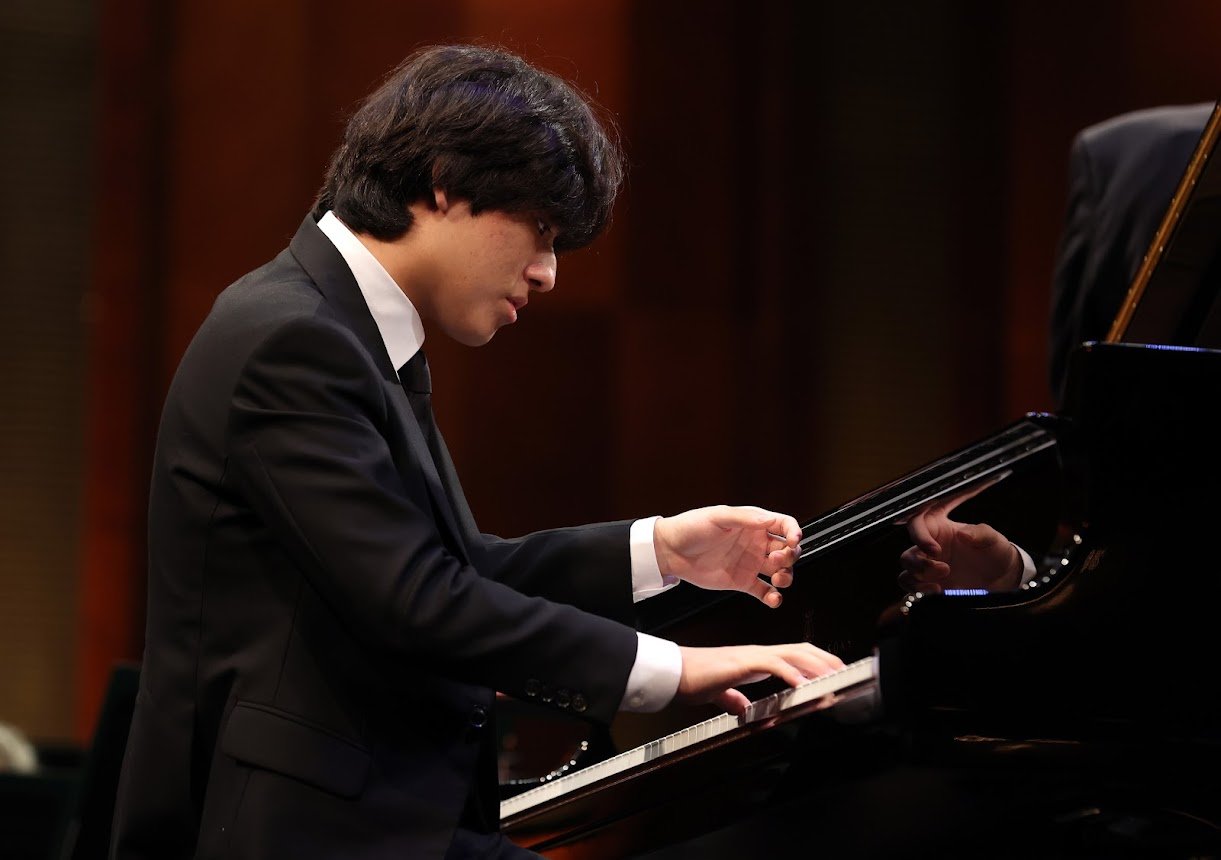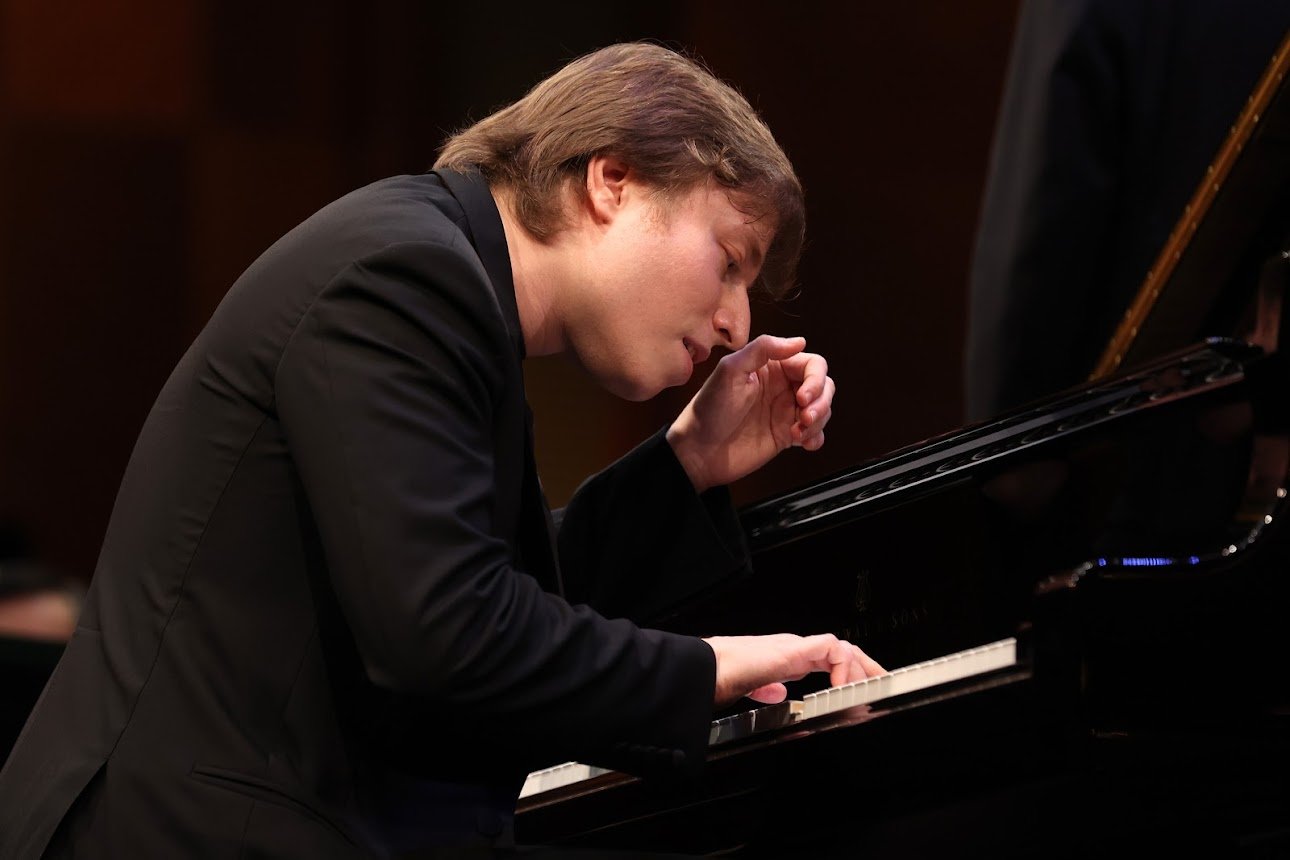Cliburn Competition: Semifinal Concert 7 (Mozart), June 11, 2022
—Wayne Lee Gay
How many ways are there to play a Mozart concerto? Saturday night's final concert of the Mozart Concerto section of the semifinals presented four pianists with four different approaches—and Nicholas McGegan conducted the Fort Worth Symphony Orchestra for each.
American pianist Clayton Stephenson, 23, opened with Mozart's cheerfully melodious Concerto No. 21. McGegan and the FWSO presented the orchestral introduction with a light touch to prepare for Stephenson's elegantly lean, trill-dominated entrance. Mozart tossed in generous sideroads into minor keys, as well as and thick chords in the piano, which Stephenson utilized effectively to add a sense of texture before the quiet close to the first movement.
Stephenson then brought an appropriate lyrical intensity to the rising theme of the Andante second movement, and continued the same attention to phrasing and articulation in the bright dance-like final Allegro. For the cadenzas, he turned to those provided by contemporary virtuoso Murray Perahia and by twentieth-century pianist Rudolph Serkin, both in a solid classical style. Stephenson owns a natural charisma and ability to connect with the audience that can guarantee a foothold in the concert world, regardless of the outcome of this contest.
South Korean pianist Changyong Shin, 28, followed with the fifth performance of Mozart's Piano Concerto No. 20 in D minor of the competition. He presented a detailed rendition but with a less broad dynamic and expressive range than the other performers of the Saturday evening concert. He used Beethoven's cadenzas, and produced a standard, absolutely correct interpretation, which probably didn't raise his recognition level with the audience, but may help his stature in jury deliberations. The only major drawback of the addition of a Mozart Concerto phase at the semifinal level has been the predominance of the D minor Concerto, the darkest (and, at one time, the most widely played) of Mozart's voluminous output of twenty-seven concertos.
South Korean Yunchan Lim, an 18-year-old audience favorite who has continuously demonstrated a remarkable level of maturity in the competition, took a decidedly romantic approach to Concerto No. 22 in E-flat, based on the legacy of early and mid-twentieth-century artist Edwin Fischer. Generally non-demonstrative at the piano, Lim nonetheless achieved numerous striking moments, not limited to but definitely highlighted in Fischer's extended cadenzas. Lim also took some liberty with the text with occasional quasi-improvisational additions to the basic melody line; purists might object, but the result was virtuosic and engaging in a manner faithful to the spirit of Mozart.
The final performance of the evening was also the last concerto of the semifinal round and the sixth presentation of No. 20 in D minor. Russian Ilya Shmukler, 27, lived up to the Russian tradition he represents with a reading rich in contrast and dramatic gesture, all of which came across as organic and natural to the music. Though this concerto has a reputation for darkness, in the Shmukler-McGegan collaboration, it had an energetic undercurrent of optimism. Shmukler relied on Beethoven's cadenzas here; he matched that with a performance that pushed the work well forward from its eighteenth-century origins towards the nineteenth, but with good effect.



